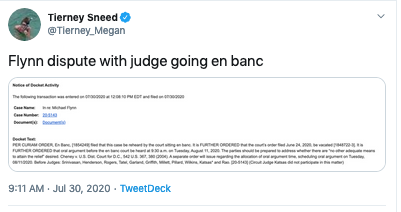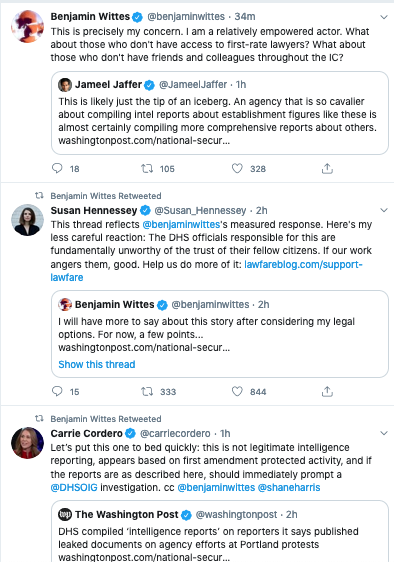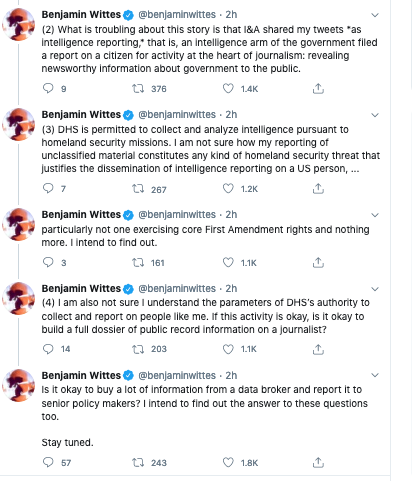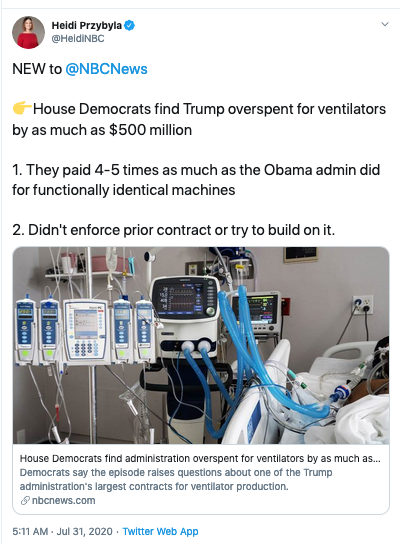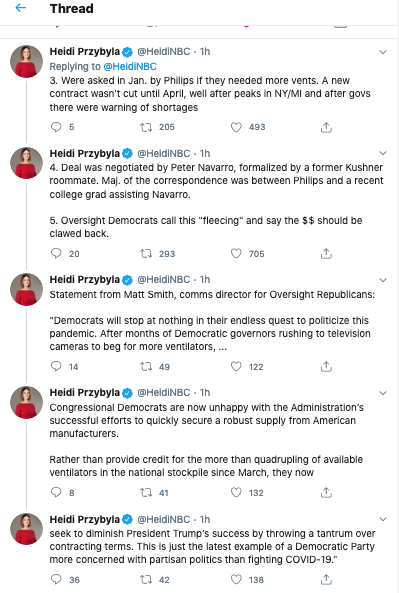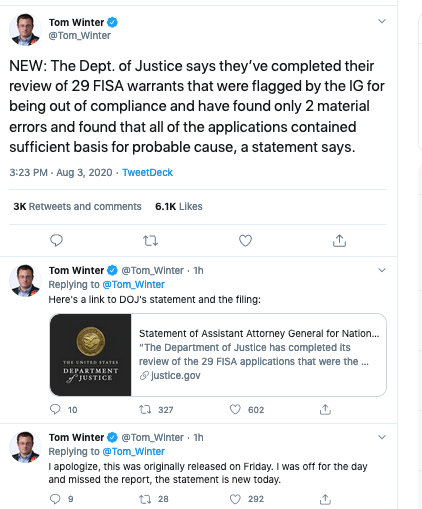New Pentagon training refers to protesters, journalists as ‘adversaries’
The training comes amid worsening relations between the federal government and protesters.
A new mandatory Pentagon training course aimed at preventing leaks refers to protesters and journalists as “adversaries” in a fictional scenario designed to teach Defense Department personnel how to better protect sensitive information.
The new course was recently launched as part of Defense Secretary Mark Esper’s effort to improve “operational security,” or OPSEC, and clamp down on leaks. The training materials are public and include a video message from Esper, as well as a July 20 memo outlining his concerns about operational security and directing all DoD personnel — military, civilian and on-site contractors — to take the course within the next 60 days.
“Unfortunately, poor OPSEC practices within DoD in the past have resulted in the unauthorized disclosure or ‘leaks,’" Esper writes in the memo. “The Department of Defense (DoD) remains committed to transparency to promote accountability and public trust. [However] unauthorized disclosures jeopardize our DoD personnel, operations, strategies and policies to the benefit of our adversaries.”
The training comes amid worsening relations between the federal government and protesters. President Donald Trump in June threatened to deploy active-duty troops in U.S. cities to tamp down protests against police brutality, and more recently, federal agents wearing military-style uniforms have cracked down on vandalism and demonstrations in Portland, Ore. And while Trump has repeatedly labeled news outlets as “the enemy of the people,” the Defense Department has been careful to avoid doing the same.
Lt. Col. Uriah Orland, a Pentagon spokesperson, defended the use of the term “adversaries” in the training.
“An adversary — a common generic term for a person or group that opposes ones tactical goals — is acting counter to our information security objectives and therefore personnel must understand that threat,” Orland said in a statement. “Attempting to read more into the use of the term obfuscates the clear purpose of the training: to prevent information from falling into unauthorized hands regardless of its potential use.”
George Little, who was a Pentagon press secretary and CIA spokesperson in the Obama administration, called the characterization “appalling and dangerous.”
“It brings to mind the same tin ear Secretary Esper recently demonstrated when he used the military term battlespace to describe America’s city streets,” Little said. “The Pentagon and the press have a long history over working alongside each other in service of the American people. Even when they don’t see eye to eye on the issues, there’s been a long history of respect for their common mission, and it’s unfortunate that the current Pentagon leadership has largely abandoned it.”
In one section of the course, trainees are given a fictional scenario in which news of a secret military exercise gets out, and TV cameras and hundreds of “anti-government protesters” show up. The exercise and the protest end up as the lead story on the evening news.
In such a scenario, the course instructs trainees to identify the “adversaries,” who it says are driven to exploit “vulnerabilities” for their own gain. In the particular scenario in the course material, the exercise organizers aimed to keep the event unnoticed, a goal that was contrary to the aims of reporters and protesters, Orland explained.
“The protest group was an adversary, not because of its political beliefs, but because its intentions were contrary to the success of the training mission," the narrator says. "Reporters also had contrary intentions and capabilities. They wanted to capture exercise activities and on video and report them on the evening news. In this instance, the reporters are adversaries.”
In the scenario, the protest group “clearly exploited one or more vulnerabilities,” the narrator states.
In another section of the course on insider threats, the media is labeled an adversary, and DoD personnel are instructed to report any contact with the press to their “information security office.”
Orland noted that the training highlights that media personnel are not typically considered a threat, however "their actions of collecting and reporting classified/proprietary information can be just as damaging.”
Price Floyd, who served as acting assistant secretary of defense for public affairs in the Obama administration and director of media relations at the State Department in the George W. Bush administration, also criticized DoD’s new policy on operational security and response to leaks.
“I think this administration confuses leaks with stories that are written that they don’t like,” Floyd said. “Because this administration, of course, gives out information to the press without attribution all the time. In other words, they’re leaking. They want the stories the way they want them.”
He also took issue with how the training course is framed, arguing that in his experience it inaccurately portrays the overall relationship between the military and the media.
“If for some reason a reporter got wind of something that was classified or secret, all it would take is a conversation with public affairs and someone to say, ‘look this is classified, it is secret, talking about it right now puts lives in danger.’”
"I think this witch hunt by Esper is just a way to try to clamp down on what they view as fake news,” he added, “when in fact all the media is doing is reporting the facts.”
Mick Mulroy, an ABC News analyst who served as the Pentagon’s Middle East policy official in the Trump administration, said he does not believe DoD intended to label all protesters and journalists as threats, but called the language in the training materials “poor word choice.”
“‘Adversary’ is a loaded term, we use it to define Russia, for example,” Mulroy said, drawing a distinction between protesters and journalists appropriately exercising their constitutional rights with “protesters that use violence against the military or service members that leak classified information.”
“However, in this climate of labeling the media being a threat to the people and protesters all being lumped together (both violent and nonviolent) the military will want to ensure that they are not adding to the problem with this type of terminology,” he said. “I don’t believe they intended to do that with this choice of terms, but it should be adjusted.”
The new OPSEC effort was launched just weeks after Esper told lawmakers in a hearing that he had begun an investigation to go after leaks, following a New York Times report about intelligence that Russia was paying militants to target American forces in Afghanistan.
Leaks “hurt our nation’s security, they undermine our troops, their safety, they affect our relations with other countries, they undermine our national policy,” Esper told lawmakers this month. “It’s something we need to get control of. It’s bad and it’s unlawful and it needs to stop.”
A separate memo released around the same time as the first laid out new guidelines for the force when interacting with members of the news media.


